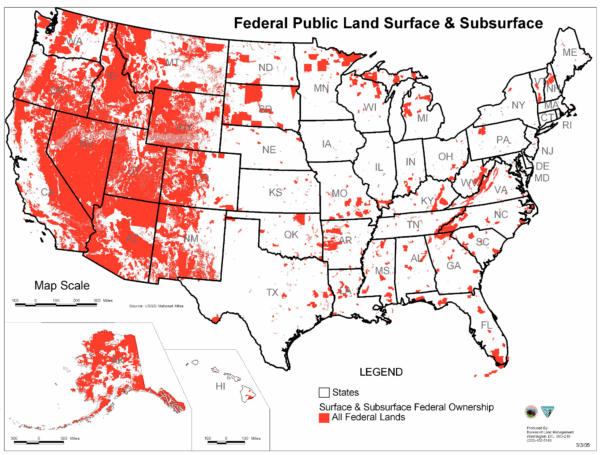FEC Commissioner Sees ‘DOGE Potential’ in Moving Agency Out of Washington
Trump moved federal jobs out of D.C. during his first term and promised more of the same while campaigning.
WASHINGTON—Federal Election Commissioner Trey Trainor has a vision, and it’s outside the Beltway.
“I think everything that we do can be done, frankly, anywhere in the United States that has a decent internet connection,” he told The Epoch Times.
Trainor, a Republican appointed during the first Trump administration, wants to move the headquarters of his campaign finance and election oversight agency away from Washington, D.C., the seat of federal power in the American political system.
Trainor said his proposal squares with the ambitions of the Department of Government Oversight, or DOGE, the Elon Musk- and Vivek Ramaswamy-led, time-limited commission that Trump has tasked to “dismantle Government Bureaucracy, slash excess regulations, cut wasteful expenditures, and restructure Federal Agencies.”
The idea, Trainor said, has “DOGE potential.”
Rent and the Cost of Living
Trainor cited expensive D.C. rent and the local cost of living, which boosts the paychecks of government workers. Trainor pointed out that FEC employees are already entitled to work from home much of the time, thanks to their union.
The commissioner said the move out of expensive D.C. could increase the number of people interested in joining the FEC.
“People may be interested in doing work in places that are probably a little easier to access,” he said.
Karen Sebold, a professor of political science at the University of Arkansas, told The Epoch Times that much of the agency’s work now occurs online.
“They might be one of the easier ones to relocate,” she said of the FEC.
Sebold said decentralization could open up federal jobs to more and different applicants than are found in the nation’s capital.
“By dispersing the agencies around the country, you’re certainly broadening the pool of people who might work for those agencies,” she said.
Other FEC observers took a more critical view of a potential move.
“Lots of places, dare I say most, are expensive today. Selling a house and relocating my family will bring its own costs,” Michael Franz, a professor of government at Bowdoin College and another campaign finance expert, told The Epoch Times via email.

Drilling rigs sit unused on a company’s lot located in the Permian Basin area in Odessa, Texas, on March 13, 2022. Joe Raedle/Getty Images
But Odessa is not the only place Trainor can imagine hosting the FEC. He told The Epoch Times that bigger cities in blue and purple states might work too.
“When you take a look at some place like Chicago or Detroit—places that have been hit pretty hard by the pandemic and are struggling to lease out their commercial space—there are other places where the agency itself could be housed and gain enormous fiscal efficiency in doing it,” he said.
Relocation and Exodus a Pattern Under Trump
Franz said Trainor’s idea “seems like a perfect way to get people to quit.”
“Say I live in DC, have a family, and work for the FEC. If they move to Texas, I either move my whole family, ask to work remotely, or quit,” he added.
Sebold warned that the agency is already understaffed.
“If they end up trying to do this to shed employees, that’s certainly not going to help the agency,” she said.
If DOGE or others take up Trainor’s proposal, it would further a trend of decentralization during Trump’s first term. Previous moves also led to mass exoduses of existing employees.
One high-profile example involved BLM, which falls under the Department of the Interior. Trump relocated BLM’s headquarters to Grand Junction, Colorado, closer to the millions of acres of mostly western lands that the agency manages.
Most of the agency’s D.C. employees did not move west for their jobs. They retired or found other federal jobs.
The Biden administration substantially reversed the maneuver, putting the headquarters back in Washington while keeping a western office in Grand Junction.
Also under Trump, most positions in the Department of Agriculture’s National Institute of Food and Agriculture and its Economic Research Service were transferred from Washington to Kansas City, in the heart of the United States’ heavily agricultural Midwest.

The federal government owns and manages approximately 650 million acres across the United States, nearly 28 percent of the nation’s land mass and almost half the surface acreage across 11 contiguous western states. U.S. Bureau of Land Management
‘A Relatively Small Agency’
Questions linger about DOGE’s ability to effect change, especially given the scale of the United States’ non-discretionary program spending and interest payments that the commission would be hard-pressed to downsize.
Still, Trainor believes an FEC relocation warrants consideration from a commission charged with bolstering the efficiency of a government bowed down by debt and persistent deficits.
“It’s a relatively small agency to move, and it’ll have a correspondingly small financial impact. But a penny saved is a penny earned,” he said.
Though she stressed that partisan gridlock and deficient enforcement are bigger problems for the agency, especially given the scale of money in American politics, Sebold noted the logic of the idea.
“I can see why they would want to save some money,” she said.
The FEC’s overhead is dominated by costs that could be downsized by a move to a cheaper locale.
“Nearly 70 percent of the agency’s budget is composed of salaries and benefits,” the FEC’s 2025 budget request notes. The agency also sought $5.4 million for rent.





